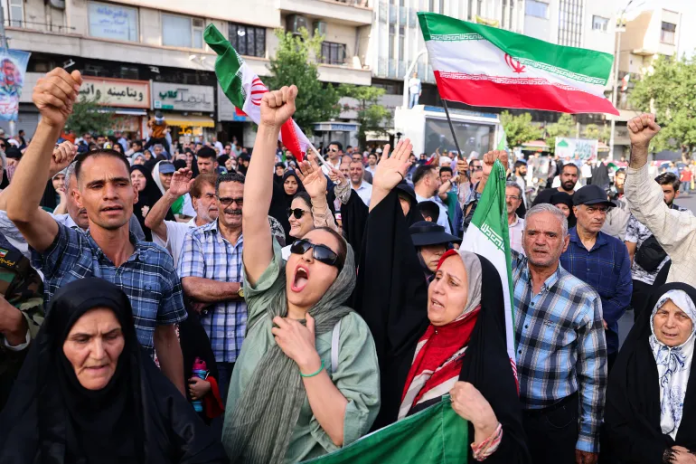An armed conflict between Israel and Iran came to an end after an exchange of strikes. Both parties claimed to have achieved their objectives, although the extent of damage and casualties was not officially disclosed. The incident entailed significant reputational damage for the participants and led to increased diplomatic efforts by other countries, including Russian mediation. Here are the highlights of the Israeli-Iranian standoff.
With the conflict against Hamas in Gaza still ongoing, Israel simultaneously attacked Iran. Israeli leaders claimed victory in the standoff, although Tel Aviv suffered multiple retaliatory missile attacks by Tehran.
Israel also did not disclose the death toll or the scale of destruction, citing military secrecy. Moreover, the country’s leadership, already under pressure over the Gaza conflict, faced condemnation both from its Middle Eastern neighbours and worldwide.
At the same time, Iran, as the second party to the conflict, appeared as a victim. Having suffered serious reputational losses, the Islamic Republic of Iran did not collapse under pressure from Israel and the United States, but instead retaliated and kept its nuclear programme on the table.
The United States entered the conflict by siding with Israel. Washington diverted some munitions from Ukraine and launched combined strikes on suspected Iranian nuclear facilities. Eventually, the United States issued numerous statements and called on Iran to return to negotiations.
Participants and observers
As for observers of the conflict, whose economies are directly affected by developments in the Middle East, Europe condemned the escalation in the region but did not take decisive action, presumably reluctant to join. Although the UK Prime Minister Keir Starmer supported US attacks on Iran, while calling for a diplomatic solution.
Meanwhile, due to the shift of international focus from the war in Ukraine to the confrontation in the Middle East, Ukrainian officials urged that aid should not be reduced. President Volodymyr Zelensky requested that allies allocate 0.25 per cent of their GDP to the Ukrainian military industry amid the advance of Russian troops in Ukraine’s Sumy region.
Beijing stressed its commitment to peace in the Middle East, whereas Moscow offered to mediate between Israel and Iran.
Nevertheless, the Israeli-Iranian conflict could serve as a dangerous precedent, as it proved the inability of international organisations to implement accountability mechanisms for breaching agreements. For North Korea, the case was further evidence of the need to possess nuclear weapons in case of sudden external aggression.
Israel sustained the greatest damage in the conflict, as it suffered both financial and reputational losses. The European countries that failed to prevent or resolve the crisis and the IAEA, the main nuclear organisation promoting the peaceful use of atomic energy, also sustained reputational damage.
Only Iran and partly the US, due to spectacular strikes and a demonstration of force, benefited from the conclusion of the conflict. Russia also gained a little by participating as a potential conciliator of the warring parties.
The conflict affected global oil prices, but given the dynamics of the price hike, international players could have predicted in advance how the confrontation would end.
Albert Martin for Head-Post.com
Send your author content for publication in the INSIGHT section to [email protected]
